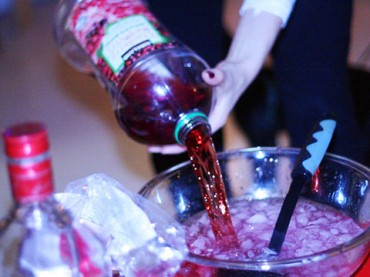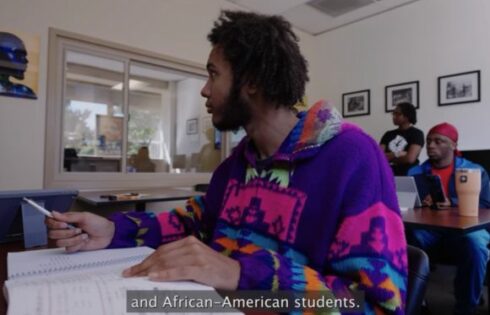
Former George Washington University President Stephen Tractenberg found out the hard way that you shouldn’t tell college women to watch their alcohol intake if they want to protect themselves from sexual assault.
Apparently that’s also been Justice Department policy – for the entire 21st century.
Robin Wilson writes in The Chronicle of Higher Education that schools can get in trouble if they include alcohol’s role in federally funded sexual-assault prevention programs:
Campus efforts considered “out of scope” for the grants include programs that “focus primarily on alcohol and substance abuse,” the grant program says online. It points administrators away from an emphasis on “changing victim behavior.”
Kathleen A. Bogle learned that alcohol could be off limits when she tried to deliver a talk several years ago called “Hooking Up, Alcohol, and Sexual Assault: Understanding the Connections and Reducing the Problem.” It was for a meeting sponsored by the Justice Department’s Office on Violence Against Women, and federal officials asked Ms. Bogle, an associate professor of sociology and criminal justice at La Salle University, to remove the word “alcohol” from the title. Focusing on how much students drink, they said, leads to blaming victims.
“This starts to censor how we can talk about the issue,” says Ms. Bogle. “I don’t think you are doing young women any favors by saying, We’re not going to tell you that this happens—and be careful about it.”
There’s actual research that shows how rare it is for women to be assaulted after they have unknowingly consumed alcohol or drugs, Wilson says – in most cases, they have voluntarily imbibed.
“Voluntarily” doesn’t have much meaning, though:
When campus officials do warn students about the role of alcohol in sexual assault, they frequently describe how a perpetrator may use it to wheedle consent out of a victim, or to get her too drunk to defend herself.
“Sexual predators weaponize alcohol,” explains Peter F. Lake, director of the Center for Excellence in Higher Education Law and Policy at Stetson University. “Your typical sexual predator will stage an attack and place alcohol where it’s heavily camouflaged, in sweet drinks.”
That’s the subject of a 13-year-old study that got “undetected rapists” to actually describe their process for pressuring women into sex, NPR says:
Together, the 120 men in Lisak’s study were responsible for 439 rapes. None was ever reported.
But Lisak had no problem getting details about how the men carefully planned and executed their assaults. They’d often ask a girl to come to a party, saying it was invite-only, a big deal to a nervous freshman. Then they’d get her drunk to the point of incapacitation so they could have sex with her. …
“We always had some kind of punch, you know, like our own home brew. We’d make it with a real sweet juice, and just pour in all kinds of alcohol. It was really powerful stuff. The girls wouldn’t know what hit them.”
Read the full Chronicle story here.
Like The College Fix on Facebook / Follow us on Twitter
IMAGE: Maciej Makalowski/Flickr





Please join the conversation about our stories on Facebook, Twitter, Instagram, Reddit, MeWe, Rumble, Gab, Minds and Gettr.